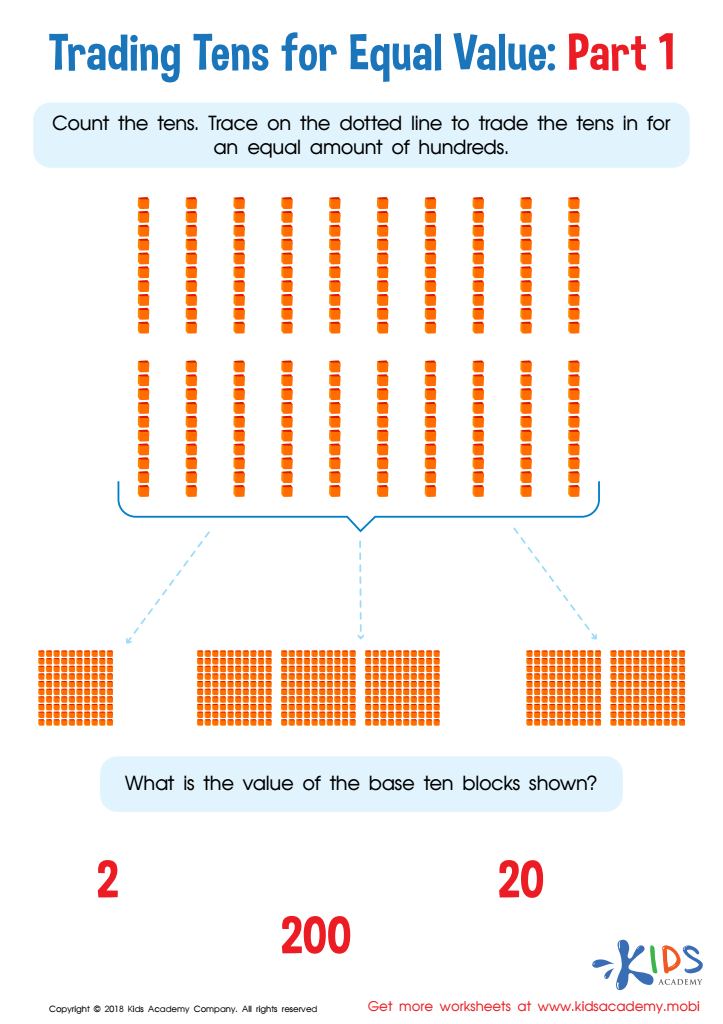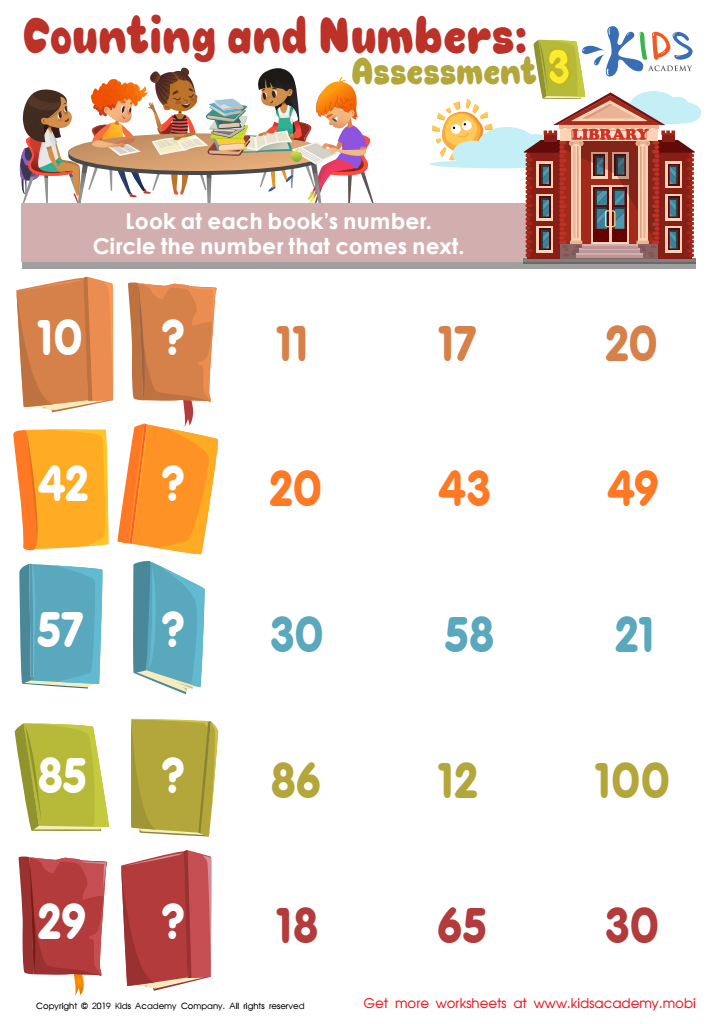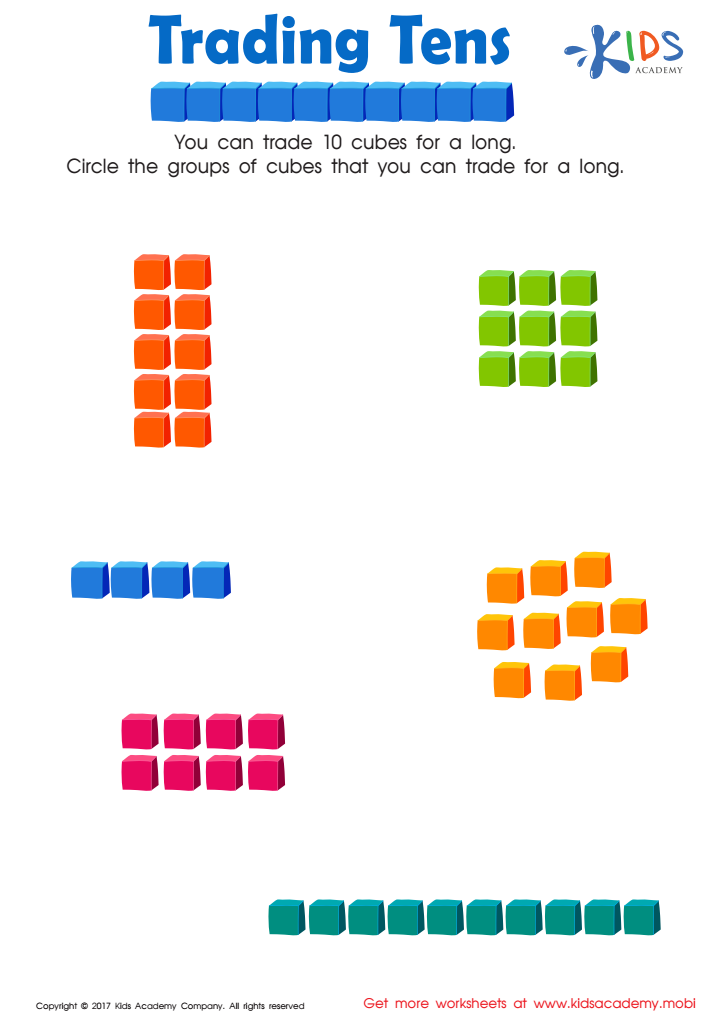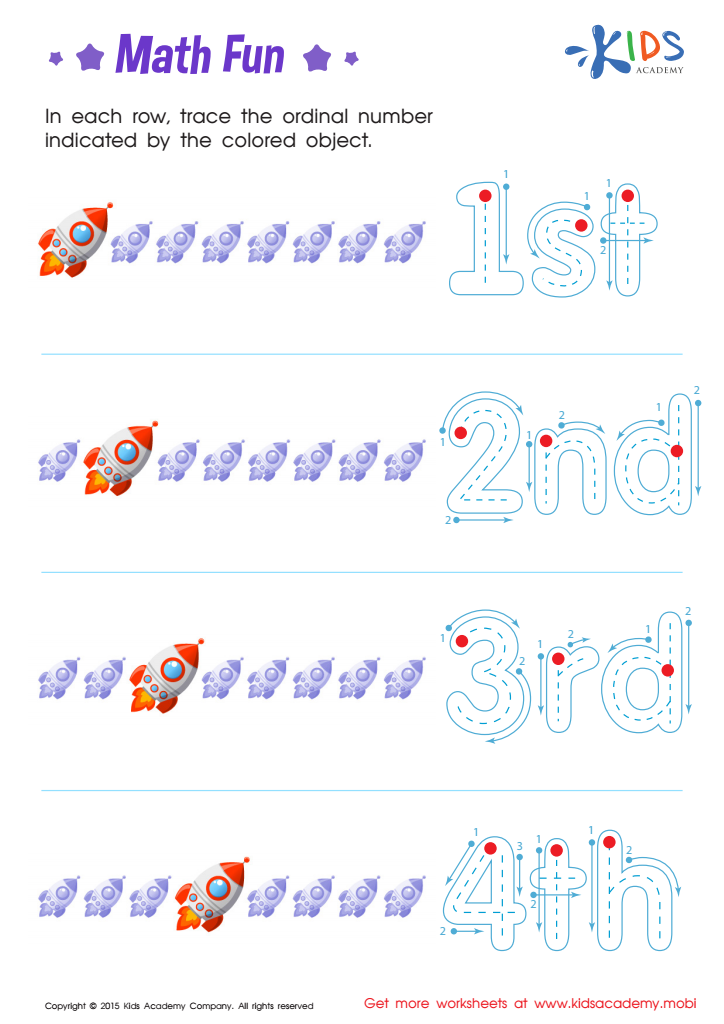Learning addition Normal Math Worksheets for Ages 3-7
4 filtered results
-
From - To
Discover our engaging "Learning Addition Normal Math Worksheets" designed for children ages 3-7! These worksheets provide a fun and interactive way for young learners to master basic addition skills. Featuring colorful illustrations and age-appropriate exercises, they help reinforce counting, number recognition, and simple addition strategies in a variety of formats. Ideal for use at home or in the classroom, our worksheets support early math learning while keeping children entertained. Parents and teachers will appreciate the clear instructions and educational value, making these resources perfect for building a strong mathematical foundation. Start your child’s addition journey today!


Trading Tens for Equal Value Worksheet: Part 1


Counting and Numbers: Assessment Worksheet


Trading Tens Worksheet


Ordinal Numbers: Math Fun Worksheet
Parents and teachers should prioritize early math skills, particularly addition, for children aged 3-7, as these foundational abilities set the stage for future learning and cognitive development. Engaging with addition at this age not only enhances mathematical understanding but also strengthens critical thinking, problem-solving skills, and logical reasoning.
Learning addition through hands-on activities, such as counting objects, using visual aids, or incorporating games, makes the concept relatable and enjoyable. This interactive approach fosters a love for math, encouraging children to explore further and develop a positive attitude towards learning. Younger children often absorb information more readily, making this the ideal time to establish a solid understanding of basic math concepts.
Additionally, proficiency in addition helps children grasp more complex mathematical concepts later in their education. This knowledge lays the groundwork for success in advanced subjects and everyday life calculations, promoting confidence and independence in problem-solving.
Moreover, early exposure to addition can reduce anxiety surrounding math in later years, addressing a common challenge many students face. Overall, by supporting the learning of addition, parents and teachers help nurture well-rounded, capable learners who are prepared to face future academic challenges with resilience and enthusiasm.
 Assign to My Students
Assign to My Students




















